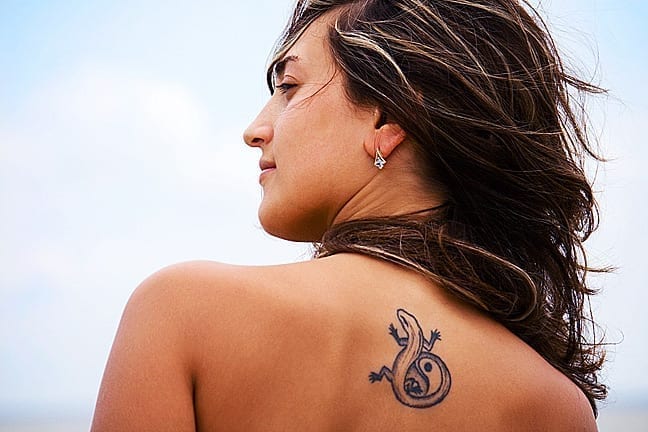You’ve probably noticed that “accessorizing” now includes many more tattoos and piercings. A whopping 24 percent of people ages 18 to 50 have tattoos.Professional tattoo artists apply tattoos with a sewing machine-type needle, which drags ink into mid to upper dermis. Some pigments have iron oxides and others, organic chemicals.Most inks/pigments are from non-sterile bottles. Some companies do make sterile pigments, which cost exponentially more than non-sterile ones. This makes them hard to find. Here’s what you need to know if you decide to get pierced or inked.Stay SterileYour artist should wear a surgical mask and sterile gloves. Your skin should be cleaned with an antibacterial agent like betadine or alcohol. Betadine is better because it lasts longer and kills a variety of viruses. It must be applied wet and allowed dry to work best.Infections may occur if your skin’s barrier is broken. Bacteria and viruses can contaminate it. They may be harbored in parts of the machine that can’t be sterilized (even if the artist thinks it’s spotless). HIV and hepatitis B and C can be transmitted through tattoos. These diseases take a long time to show up in blood tests, so you won’t be able to donate blood for a year after getting a tattoo.People with tattoos are nine times more likely to contract hepatitis C than those without. Essentially, you’re having sex with your tattoo artist and everyone else he’s used the pigment on. So do your research thoroughly before choosing a tattoo artist or establishment.Think AheadYou may want to think twice about getting a tattoo on an area that’s visible in normal clothing. Your neck will be visible to an employer your whole life. Pick spots that can be concealed (and are amenable to future modification. Think upper legs, buttocks and back. Where your skin is thin, it’s more difficult and painful to later remove tattoos.Keep It CleanTreat your tattoo like a wound for a week or more. Wash it with soap and water twice a day. Coat the area with bacitracin or petroleum jelly. It’ll stop hurting when it’s healed. If it still hurts after five days, call your doctor.Taking It OffIf the tattoo is small, and you want to get rid of it, you might consider getting it surgically removed. It will scar, however. Lasers might be the answer for larger areas. Each treatment blurs the design until it’s hard to see. However, it does take many painful, expensive treatments, often leaving white scars behind.Within a few years, scientists will use biodegradable pigment sealed into small plastic capsules. Lasers break open the capsules and the tattoo disappears. Like magic!Check the Piercing ToolsPiercing instruments must be sterilized in medical-grade machines that kill every germ (autoclaves). They should not be boiled, placed in hot glass beads or dipped in a chemical. The instruments should be placed in a bag with an indicator that tells you the proper temperature’s reached to kill bacteria and viruses.QUIZ: Is Your Skin Healthy?The autoclave must be tested once a week to ensure it’s working properly. The piercer should prepare just like the tattoo artist (minus the mask). You can have your jewelry sterilized beforehand (we recommend wearing metal jewelry right after the piercing).After, keep the piercing clean with hydrogen peroxide on a washcloth or tooth pick, then coat with antibiotic ointment. Don’t clean the area with alcohol—it will actually stall healing. Don’t remove the jewelry for more than a few minutes until the piercing heals, which can take weeks to months.Be SmartWe recommend that you draw an ink spot exactly where you want the piercing. You increase your risk for infection if you stray to areas outside the earlobes and belly button. Ear cartilage has poor blood supply and can’t fight germs that get in.In the eyebrow, there’s a nerve that supplies sensation to the forehead, which might be speared. Painful scar tissue called neuroma can form.The nose, labia and nipples are dangerous infection zones and can have long-term effects, like on breast-feeding. And the tongue? Make sure you have good dental insurance because these piercings clang against your tooth enamel and can give you bad breath
© YouBeauty 2024




































